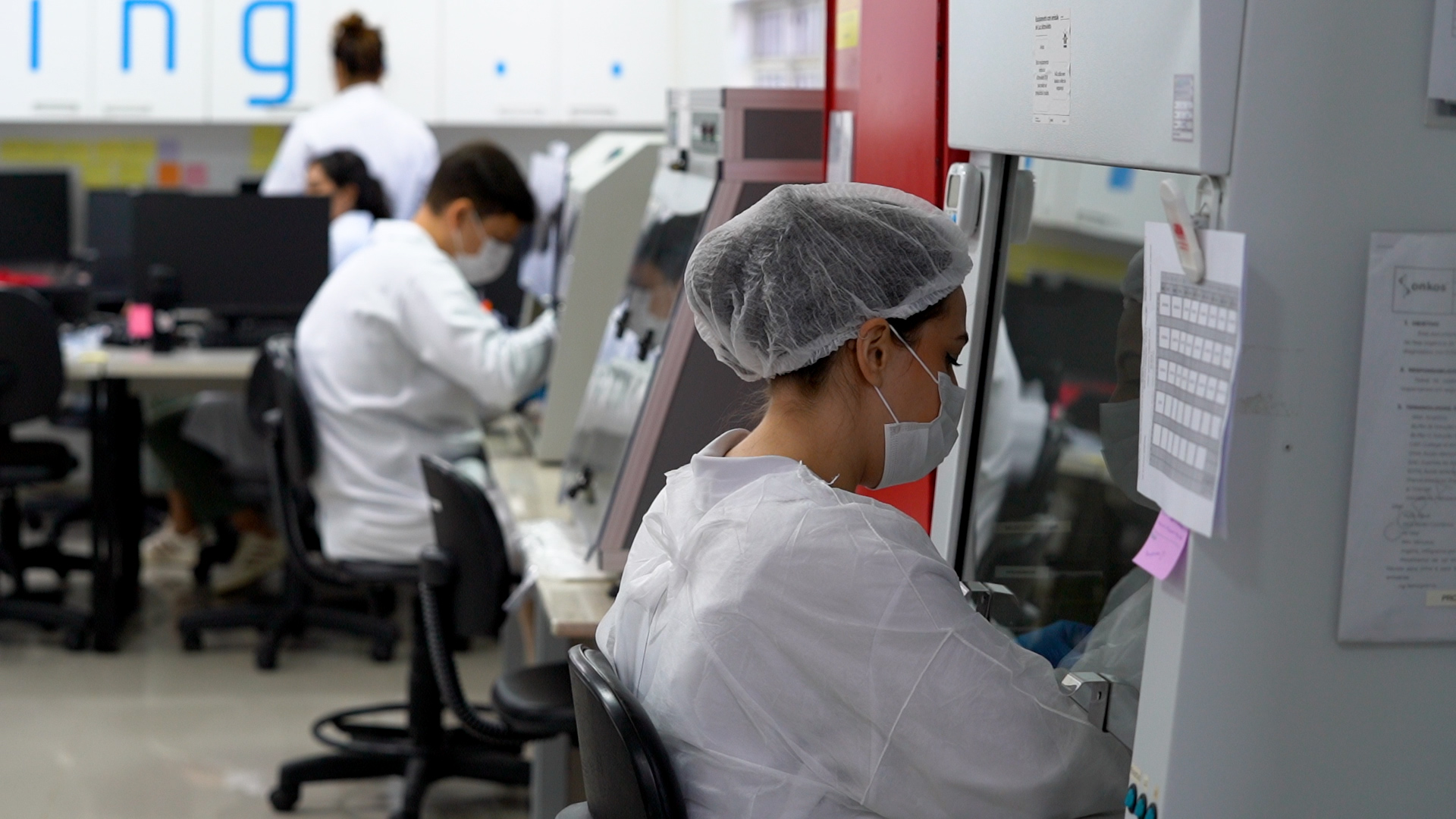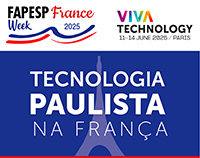


Available on the market since 2018 and already sold in more than 30 countries, the test called mir-THYpe performs molecular analyses combined with artificial intelligence tools (photo: Phelipe Janning/Agência FAPESP)
Published on 06/05/2025

By Elton Alisson | Agência FAPESP – A diagnostic test developed by a startup in Ribeirão Preto, in the interior of the state of São Paulo, Brazil, helps identify and classify thyroid nodules. The test prevents patients with suspected endocrine gland cancer from undergoing unnecessary surgeries and procedures.
Created by Onkos, the test has been available on the market since 2018 and has already been sold in more than 30 countries. It can differentiate between benign and malignant nodules through a combination of molecular analysis and artificial intelligence tools.
Supported by FAPESP’s Innovative Research in Small Businesses Program (PIPE), Onkos participated in a series of lectures on innovation in health which took place from June 10th to 12th in Toulouse, during FAPESP Week France. Onkos was also one of ten companies invited by the Foundation to present at the University of São Paulo (USP) stand at the VivaTech international fair, one of Europe’s largest technology and startup events, which takes place from June 11th to 14th in Paris.
This 2025 edition of VivaTech explores the latest technological innovations from economic, geopolitical, social, and environmental perspectives. Last year, 165,000 people visited the various stands at the fair.
“Today, between 7% and 8% of our test sales revenue comes from abroad, and we’re now entering the European market. Participating in VivaTech will be extremely important for us to begin to understand the European market and France’s innovation environment and to establish initial contacts and partnerships to bring the technology we’ve developed in Brazil to the world,” said Marcos Tadeu dos Santos, founder of the company, in an interview with Agência FAPESP.
The molecular test, called mir-THYpe, uses biomarkers to confirm or rule out the presence of cancer in thyroid nodules with indeterminate results.
According to Santos, the vast majority of nodules are benign, but up to 30% of them are classified as “indeterminate.” For safety reasons, the standard procedure in these cases is surgery to remove the thyroid. However, only 25% of cases are malignant, meaning that 75% of surgeries for indeterminate nodules are potentially unnecessary.
“At certain points in their journey, the cancer patients are faced with what we call diagnostic uncertainties, which lead them to undergo unnecessary procedures, surgeries, and treatments. We identified some of these gaps and planned the development of diagnostic tests using molecular biology and artificial intelligence to solve these patients’ problems,” says Santos.
Competitive advantages
According to the researcher, there are currently three technologies competing with the test offered by Onkos, which was developed in the United States. One competitive advantage of the Brazilian test, however, is its cost – it is one-third to one-quarter of the price charged by foreign competitors.
Another advantage of mir-THYpe is that the tissue sample from the nodule does not need to be refrigerated for analysis. “For this reason, we’re able to bring samples from anywhere in the world to Ribeirão Preto and perform the tests here,” says Santos.
In addition, the patient does not need to undergo a new biopsy for the test. “For other tests, the patient needs to return to the laboratory and undergo a new biopsy when the nodule is classified as indeterminate,” he compares.
Europe is considered a promising market for the test since the European Thyroid Association (ETA) published an official recommendation in 2024 for using molecular tests to diagnose thyroid nodules classified as indeterminate, such as the one developed by Onkos. However, the solution is not yet available in Europe.
“That’s why we’re looking closely at the European market now, because there’s a demand. But there are a number of regulatory issues that we need to overcome,” said Santos. The company has been conducting clinical studies of the test in countries such as England and Spain to validate its use in the European population. During his trip to France, Santos plans to establish contacts with research centers, hospitals, and laboratories in the country to continue this work.
“Other deeptechs [science and technology-based startups] also need to move toward internationalization, learn the ropes, and then come back and teach others, so that this flow increases. We want to stop exporting soybeans and importing iPhones,” says Santos.
Source: https://agencia.fapesp.br/54969